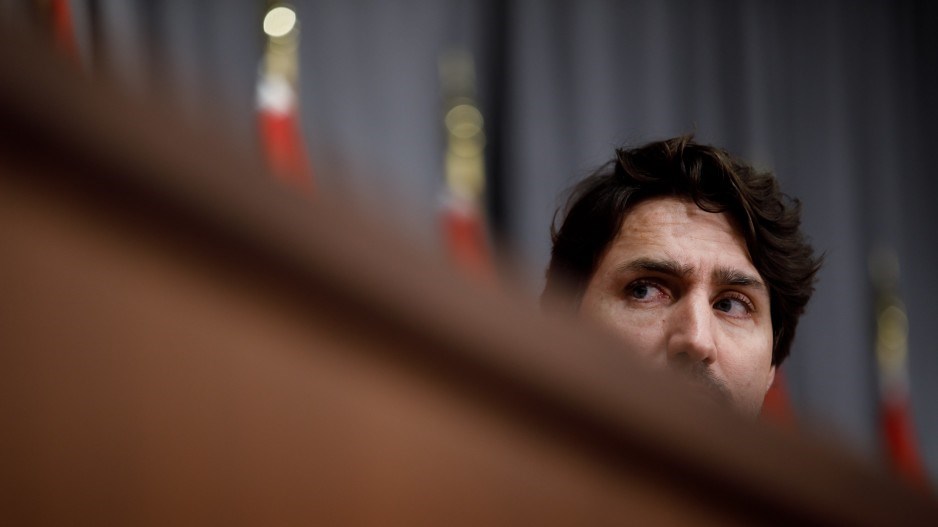Prime Minister Justin Trudeau is avoiding making any commitments to stepping in on behalf of the provinces amid surging COVID-19 cases in B.C., Ontario and Quebec.
When pressed on whether the federal government was willing to tell provinces it would take on a greater role, Trudeau said during a Friday briefing Ottawa would continue offering its support.
“I can understand the frustration, the anxiety, the concern that Canadians right across the country are feeling,” he said.
“We will continue to be there to work hand in hand, and respect the provinces as they make the right decisions for their jurisdictions.”
Trudeau added that the caseload and trajectory of COVID-19 cases aren’t on the same path across the country. Instead, he said businesses could continue to tap federal supports amid varying restrictions.
“This third wave is more serious and we need to hang in there for another few weeks to make sure that we can flatten that curve, [and] drop those numbers down again to give a chance for vaccines to take hold and allow us to get to what will hopefully be a much more normal summer,” he said.
So far the federal government has delivered 10.5 million doses of vaccine to the provinces.
B.C., which accounts for 13% of Canada’s population, has so far administered a little less than one-tenth of those vaccines.
The province reported its largest-ever number of cases on Thursday — 1,293 in a single day — while Canada’s chief public health officer, Dr. Theresa Tam, noted that variants of concern have nearly doubled over the past week to 25,000 cases.
B.C. introduced restrictions on indoor dining and fitness clubs last week and on Thursday introduced $50 million in support for restaurants and other affected businesses.
Meanwhile, Public Services and Procurement Anita Anand said the federal government has been carrying on discussions with U.S. officials about securing additional supplies of the AstraZeneca plc vaccine that have been manufactured south of the border.
Last week, truckers delivered 1.5 million doses of the AstraZeneca vaccine — which has not yet been approved by American regulators — to Canada as loans.
The arrangement between the U.S. and Canada requires the latter to repay the Americans with its own previously ordered vaccine doses from AstraZeneca at a later date.
Anand said she is also hopeful Johnson & Johnson will be able to provide a delivery schedule for its single-shot vaccine by next week.
Deliveries of the Johnson & Johnson vaccine are expected to begin at the end of the month.
B.C. provincial health officer Dr. Bonnie Henry said Thursday the province is in the process of “ramping up” its essential worker vaccination program once again after it was suspended last week amid concerns the vaccine used for the program, manufactured by AstraZeneca, has been linked to a small number of blood clots worldwide.
Immunization on the West Coast relies on administering the Pfizer Inc. and Moderna Inc. vaccines to the general population based on descending age brackets.
But with the recent arrival of AstraZeneca doses, the province last month unveiled plans to allow essential workers to get vaccinated outside their age group with AstraZeneca doses. Those efforts are on hold for now, but Henry said on Tuesday that the expected arrival of the Johnson & Johnson vaccine this month may allow the program to resume in the coming weeks.




